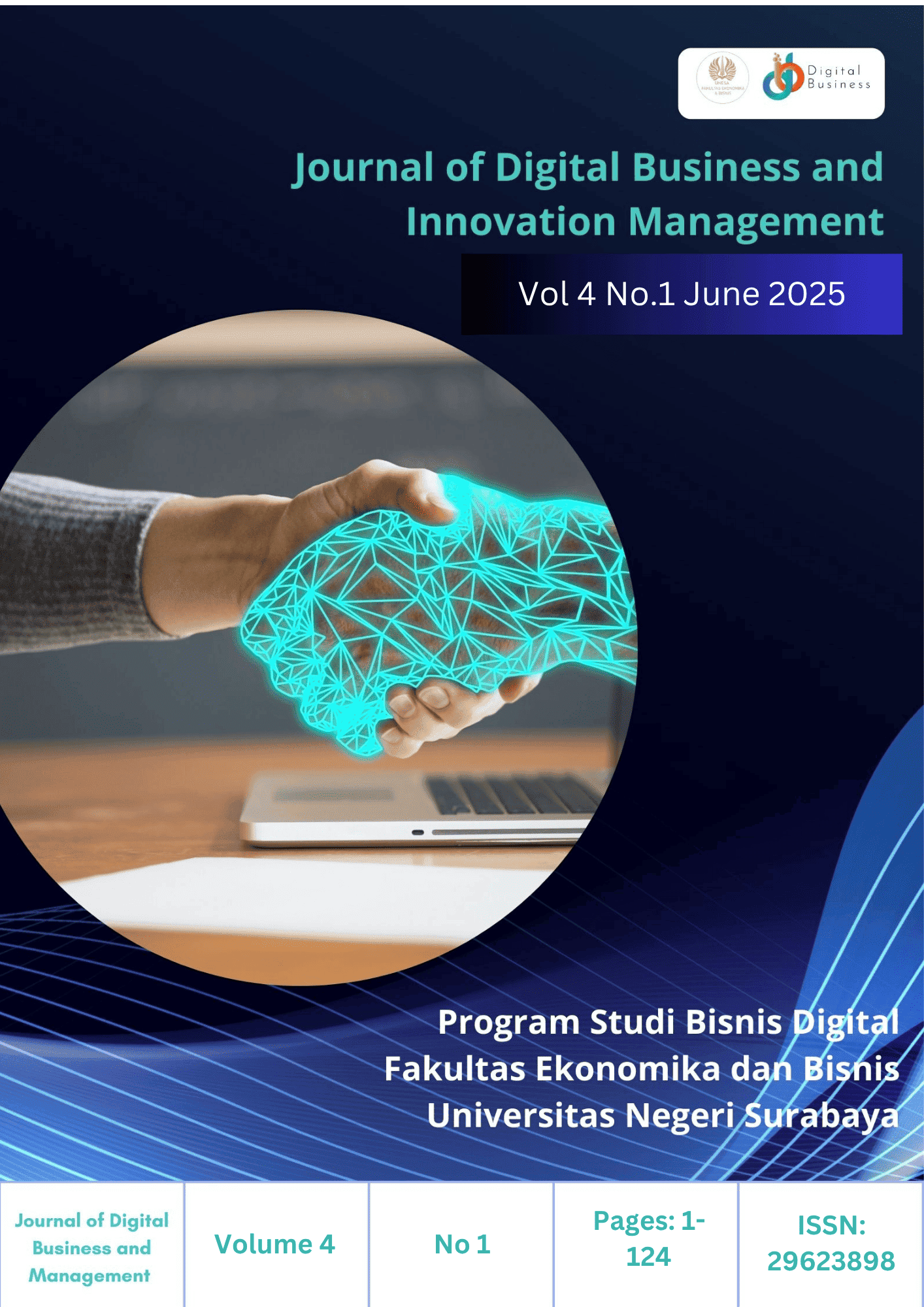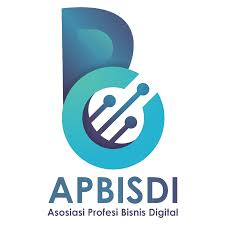AI Chatbot as a Prompt Generator: A Solution for Enhancing Digital Marketing Campaign Productivity
Keywords:
AI Chatbot, Generator Prompt, Digital Marketing, Productivity, EngagementAbstract
This research implements utilization of the artificial intelligence (AI) based chatbots for automatically generating prompt for digital marketing ideas to boost productivity. The interesting results of the study revealed through qualitative methods are that, besides tremendously speeding up the content creation process, chatbots attract a much larger audience. As AI understands the natural language and is processed, the chatbots can help with generating relevant and content ideas in compliance with user needs. This is an alarming discovery that emphasizes how required A.I is as a part of modern marketing strategies as personalization and efficiency are essential for a successful marketing campaign and part of marketing technology stack. The paper further discusses potential challenges like data privacy and algorithmic bias that should be taken into account while using AI. So the created chatbot system will be a sustainable solution.
Keywords: AI Chatbot; Generator prompts; Digital marketing; Productivity; Engagement.
Downloads
References
Adamopoulou, E.; Moussiades, L. Chatbots: History, technology, and applications. Machine Learning Applications, 2020, 2, 100006.
Alqurashi, D. R., Alkhaffaf, M., Daoud, M. K., Al-Gasawneh, J. A., & Alghizzawi, M. (2023). Exploring the Impact of Artificial Intelligence in Personalized Content Marketing: A Contemporary Digital Marketing. Migration Letters, 20(S8), 548–560. Retrieved from https://migrationletters.com/index.php/ml/article/view/4630
Angrosino, M. V., & Rosenberg, J. (2011). Observations on observation: Continuities and challenges. In The SAGE Handbook of Qualitative Research (pp. 467-478). SAGE Publications.
Balcombe, L. (2023). AI Chatbots in Digital Mental Health. Informatics, 10, 82. https://doi.org/10.3390/informatics10040082
Borah, A., et al. (2020). Social media firestorm dynamics. Journal of Marketing.
Bryant, A. (2023). AI Chatbots: Threat or Opportunity? Informatics, 10, 49. https://www.mdpi.com/2227-9709/10/2/49
Carlson, J., et al. (2018). Customer relationship through social CRM. Journal of Business Research.
Chaffey, D., & Smith, P. R. (2022). Digital Marketing Excellence: Planning, Optimizing, and Integrating Online Marketing. Routledge.
Chen, X., You, X., & Chang, V. (2021). FinTech and commercial banks’ performance in China: A leap forward or survival of the fittest? Technological Forecasting and Social Change, 166(January), 120645. https://doi.org/10.1016/j.techfore.2021.120645
Creswell, J. W., & Creswell, J. D. (2017). Research Design: Qualitative, Quantitative, and Mixed Methods Approaches. SAGE Publications.
Creswell, John. W. (1998). Qualitatif Inquiry and Research Design. California: Sage Publications, Inc.
Denecke, K., Abd-Alrazaq, A., & Househ, M. (2021). Artificial Intelligence for Chatbots in Mental Health. In Multiple Perspectives on Artificial Intelligence in Healthcare: Opportunities and Challenges. Springer, pp. 115–128.
Ding, M., Dong, S., & Grewal, R. (2024). Generative AI and Usage in Marketing Classroom. Customer Needs and Solutions, 11(1). https://doi.org/10.1007/s40547-024-00145-2
Dubey, R., et al. (2020). Big data analytics and artificial intelligence pathway to operational performance...International Journal of Production Economics.
Flick, U. (2018). An Introduction to Qualitative Research. SAGE Publications Limited.
Gao, Y., Arava, S. K., Li, Y., Jr, J. W. S., & Biology, C. (2023). Improving the Capabilities of Large Language Model Based Marketing Analytics Copilots with Semantic Search and Fine-Tuning.
Goodfellow, I., Bengio, Y., & Courville, A. (2016). Deep Learning. MIT Press.
Haque, M. D. R., & Rubya, S. (2023). An Overview of Chatbot-Based Mobile Mental Health Apps. JMIR mHealth and uHealth, 11, e44838.
Heitmann, M. (2024). Generative AI for Marketing Content Creation: New Rules for an Old Game. NIM Marketing Intelligence Review, 16(1), 10–17. https://doi.org/10.2478/nimmir-2024-0002
Hewett, K., et al. (2016). The Impact of Social Media on Brand Communication. Journal of Marketing.
Holliman, G., & Rowley, J. (2014). Business to Business Digital Content Marketing. Journal of Research in Interactive Marketing.
Houde, S., & Hill, C. (2004). What do Prototypes Prototype? USA: Apple Computer, Inc.
Huang, M. H., & Rust, R. T. (2021). A Strategic Framework for Artificial Intelligence in Marketing. Journal of the Academy of Marketing Science, 49(1), 30–50. https://doi.org/10.1007/s11747-020-00749-9
Husin, N., et al. (2021). Analysis of Digital Music Service User Behavior... Journal of Engineering Science and Technology, 16(2), 1644–1666.
Husin, N., et al. (2022). Analyzing the Implementation of NFTs in the Digital Music Industry... In Proceedings of the 10th International Conference on IT and Cyber Service Management (CITSM), IEEE.
Jurafsky, D., & Martin, J. H. (2019). Speech and Language Processing. Pearson.
Jurafsky, D., & Martin, J. H. (2020). Speech and Language Processing. Pearson.
Kallio, H., Pietilä, A. M., Johnson, M., & Kangasniemi, M. (2016). Systematic Methodological Review... Journal of Advanced Nursing, 72(12), 2954-2965.
Kaperonis, S. (2023). How Artificial Intelligence (AI) is Transforming UX in Digital Marketing. https://doi.org/10.4018/978-1-6684-9324-3.ch005
Kotler, P., & Armstrong, G. (2020). Principles of Marketing. Pearson Education.
Kumar, V., Ramachandran, D., & Kumar, B. (2021). Influence of New-Age Technologies on Marketing. Journal of Business Research, 125, 864–877. https://doi.org/10.1016/j.jbusres.2020.01.007
Manning, C. D., Raghavan, P., & Schütze, H. (2008). Introduction to Information Retrieval. Cambridge University Press.
Miao, F., et al. (2022). An Emerging Theory of Avatar Marketing. Journal of Marketing, 86(1), 67–90.
Moe, W., & Schweidel, D. A. (2017). Social Media Listening for Better Insights. Marketing Science.
Moleong, L. J. (2014). Metodologi Penelitian Kualitatif Edisi Revisi. Bandung: PT. Remaja Rosdakarya Offset.
Papineni, K., Roukos, S., Ward, T., & Zhu, W.-J. (2002). BLEU: A Method for Automatic Evaluation of Machine Translation. ACL.
Patton, M. Q. (2015). Qualitative Research and Evaluation Methods. SAGE Publications.
Pressman, R. S. (2012). Rekayasa Perangkat Lunak (Pendekatan Praktisi). Yogyakarta: Penerbit ANDI.
Pressman, R. S. (2014). Software Engineering: A Practitioner’s Approach. McGraw-Hill Education.
Pressman, R. S. (2015). Software Engineering: A Practitioner’s Approach. McGraw-Hill Education.
Ribeiro, T., & José Luís Reis. (2020). Artificial Intelligence Applied to Digital Marketing, 158–169. https://doi.org/10.1007/978-3-030-45691-7
Rizvi, M. (2023). AI Chatbots Revolutionize Depression Management and Mental Health Support. https://www.dataversity.net/ai-chatbots-revolutionize-depression-management-and-mental-health-support/
Royce, W. (1970). Managing the Development of Large Software Systems. IEEE.
Russell, S., & Norvig, P. (2021). Artificial Intelligence: A Modern Approach (4th ed.). Pearson.
Safitri, A., et al. (2023, August). Variables in SME Fashion Industry Using NFT Blockchain... In Proceedings of the 2023 International Conference on Data Science and Its Applications (ICoDSA) (pp. 489–494). IEEE.
Silverman, D. (2020). Interpreting Qualitative Data. SAGE Publications Ltd.
Sommerville, I. (2016). Software Engineering. Pearson.
Straus, Anseirn, & Corbin, J. (1990). Basics of Qualitative Research: Grounded Theory Procedures and Techniques. Newbury Park, CA: Sage.
Tashtemirovich, A. O., et al. (2024). Investigating the Impact of Artificial Intelligence on Digital Marketing Tactics...International Journal of Neutrosophic Science, 23(3), 175–183.
Timoshenko, A., & Hauser, J. R. (2019). Interactive Marketing with Automated Assistants: Chatbots in Consumer Behavior. Marketing Science.

Downloads
Published
How to Cite
Issue
Section
License
Copyright (c) 2025 Journal of Digital Business and Innovation Management

This work is licensed under a Creative Commons Attribution 4.0 International License.
 Abstract views: 138
,
Abstract views: 138
, PDF Downloads: 91
PDF Downloads: 91






